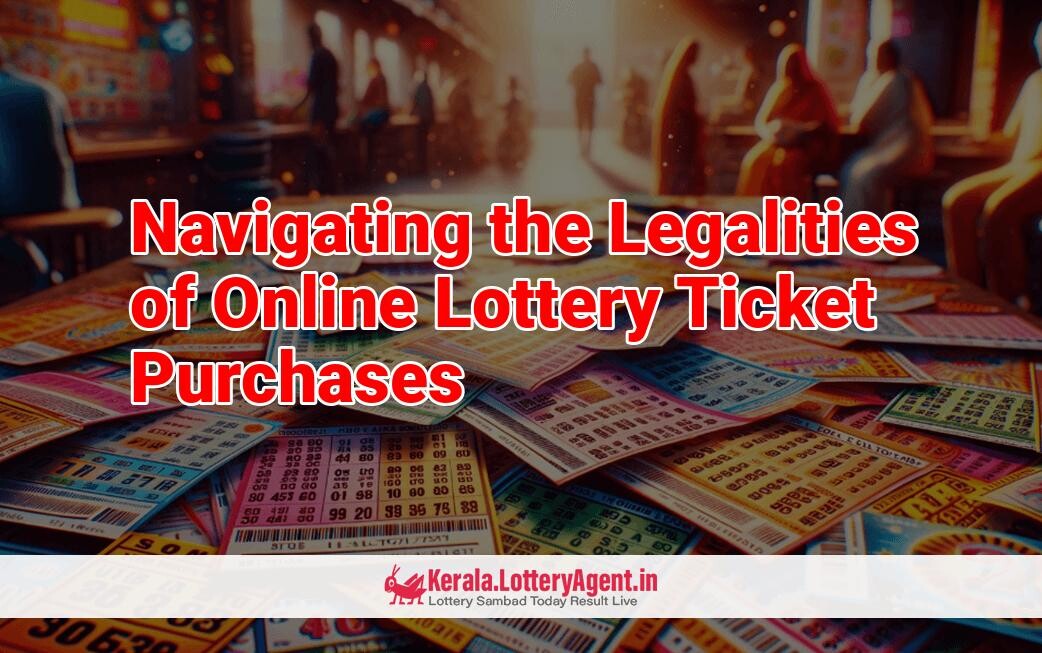
The digital evolution has brought countless conveniences into our daily lives, and one of the less-talked-about yet rapidly growing trends is the online lottery. Millions around the globe have embraced the comfort of buying lottery tickets over the internet. The appeal is evident: players can choose from a more extensive selection of games and participate without geographical limitations. However, there is an essential caveat to this modern convenience—legality. Potential participants must confirm whether engaging in online lottery transactions is lawful in their region before reaching for their wallets.
Lottery laws vary widely, with stances on the online lottery ranging from fully legal to a mixed bag of regional restrictions, right down to complete prohibition. To assist interested parties, experts have compiled a comprehensive guide on the ins and outs of buying lottery tickets online. What follows is an informative primer on the subject for those considering taking their lotto hobby to the digital domain.
Historically, the legal landscape for U.S. online lotteries was unfriendly due to the 1961 Wire Act, which deemed gambling-related electronic transactions illegal. However, a significant turn of events took place in 2011 when the U.S. Department of Justice opined that the Act only applied to sports betting. This clarification allowed individual states to begin sanctioning online lottery sales.
The global picture shows a patchwork of approaches. Some nations completely forbid lotteries, online sales included, while others have established legal frameworks that endorse online lotto play. Yet, others still sit on the fence with no clear regulations in place. Notably, a host of countries where online lottery participation is both legal and popular include the United States, the United Kingdom, France, Germany, and Australia, among others.
Where national legislation is silent or non-existent regarding online lotteries, it often falls on the resident to consult local laws. Some jurisdictions permit international lottery websites to operate, whereas others strictly enforce their absence. For prospective players, a consultation with legal authorities or law specialists is recommended prior to engaging in online lottery play.
In the United States, discrepancies between state regulations create a complex environment; not every state that considers lotteries legal also allows for their online purchase. States where participating in online draws like Powerball or MegaMillions is possible include New Hampshire, Georgia, and Michigan, with many others on the list. Digital lottery landscapes can shift as state laws evolve, highlighting the importance of keeping abreast of current regulations.
Tax implications of winning online lotteries cannot be ignored, especially for U.S. residents playing games hosted out-of-state or for foreign nationals who strike it rich on American soil. The winning state will apply its tax rates, and international winners face a 30% federal tax unless exempted by a treaty between their home country and the United States. Detailed attention to these legal nuances is crucial to avoid unwelcome surprises come tax season.
As with any internet-based activity, caution must be exercised due to online scams. Lottery players are advised to patronize reputable websites to prevent issues such as unpaid winnings, personal data leaks, and the threats posed by insecure or compromised devices.
The allure of major lotteries can be enticing, with popular draws like US Powerball, EuroMillions, and Australia Oz Lotto often posting significant ticket sales. Accessing these games online requires a straightforward process: finding a reliable lottery website, registering an account, funding it, and making ticket purchases for the desired draws.
Winners of online lotteries have several withdrawal options, with payment methods varying across platforms. From PayPal to traditional bank withdrawals and even cryptocurrencies, the choice fitting one’s needs becomes a personal decision, albeit one potentially subject to transaction fees.
To conclude, embarking on the journey of buying online lottery tickets is not merely a click away—it demands diligent consideration of the laws governing your area of residence. Whether domestically or internationally focused, would-be players must equip themselves with the knowledge of what’s permissible, tax implications, and best practices to ensure their online lottery experience remains above board and enjoyable.











